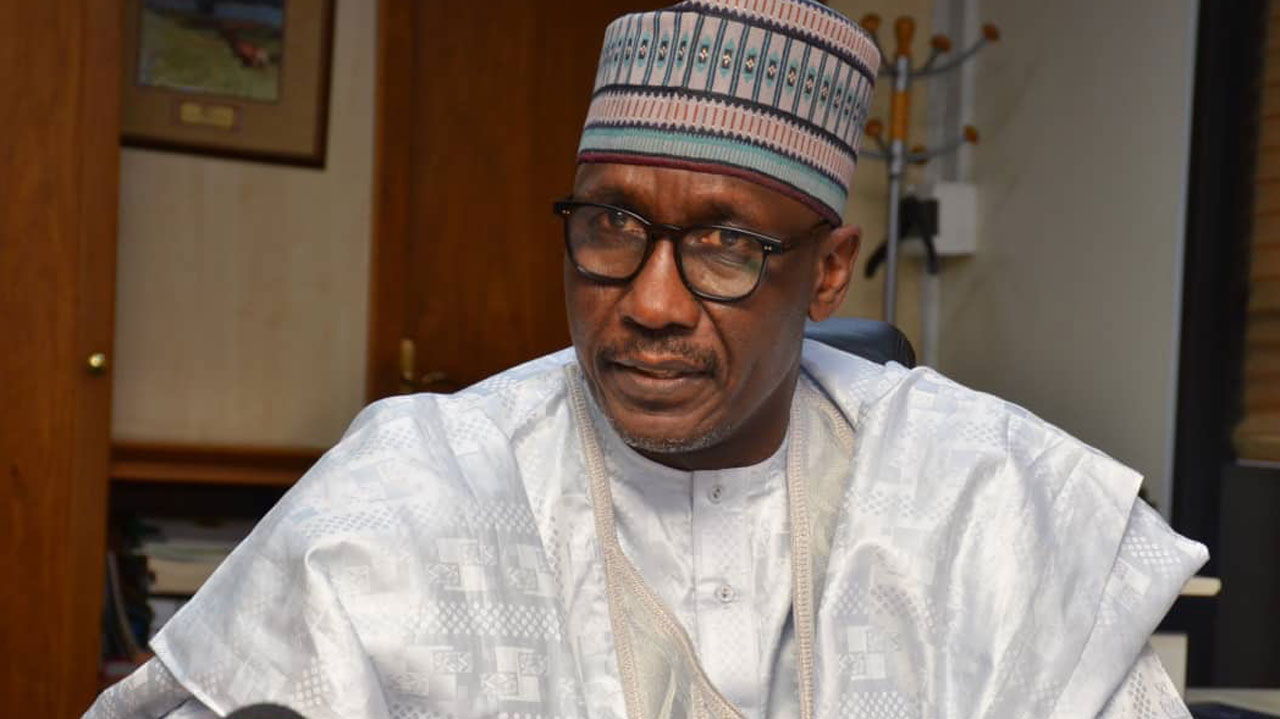NNPC must end fuel scarcity
The current fuel scarcity in Nigeria is very traumatic, as it combines with the grinding scarcity of cash, imposed by the Central Bank of Nigeria (CBN), and the poor internet connectivity that makes online or cashless transactions frustrating. Though the Nigerian National Petroleum Company (NNPC) Limited has found an excuse for the scarcity in the […]

NNPCL GCEO, Mele Kyari
The current fuel scarcity in Nigeria is very traumatic, as it combines with the grinding scarcity of cash, imposed by the Central Bank of Nigeria (CBN), and the poor internet connectivity that makes online or cashless transactions frustrating. Though the Nigerian National Petroleum Company (NNPC) Limited has found an excuse for the scarcity in the restriction of movement during the 2023 elections, it is difficult to accept the democratic process as an alibi for the inefficiency of the ‘transformed’ oil and gas company, which ought to have put in place all measures that should facilitate seamless fuel supply to boost profitability, in line with its current mandate.
The grinding scarcity has created a loophole for Shylock merchants to rip off Nigerians in the most cruel manner. While petrol stations in Abuja and Lagos accumulate long queues because they dispense Premium Motor Spirit (PMS) at the official N195 per litre, many other ‘black market’ petrol stations and hawkers milk dry many helpless Nigerians by selling the product at between N350 and N500 per litre. The agony Nigerians have to endure under this unnecessary and avoidable scarcity of petroleum products is too much for a country that belongs to the Organisation of Petroleum Exporting Countries (OPEC).
Occurring about two months after the inauguration of the 14-man presidential committee on the eradication of fuel scarcity, a committee headed by President Muhammadu Buhari, it is worrisome that the president has maintained a shocking silence in the face of this suffering. The committee, which has the Minister of State for Petroleum Resources, Chief Timipreye Sylva, as alternate chairman, was set up “to ensure national strategic stock management, visibility of the Nigerian National Petroleum Company Limited (NNPC), refineries rehabilitation programme and end-to-end tracking of petroleum products, especially petrol, to ascertain daily national consumption and eliminate smuggling.”
The minister, while directing the Nigerian Midstream and Downstream Petroleum Regulatory Agency (NMDPRA) to ensure NNPC Ltd did not sabotage the task of the presidential committee, said, “The federal government will not allow misguided elements to bring untold hardship upon the citizenry and attempt to discredit government’s efforts in consolidating the gains made thus far in the oil and gas sector of the economy.”
- No empirical evidence to show any attack on LP supporters – Police
- BREAKING: CBN has directed banks to dispense old notes – Soludo
The powerful committee has as members, Minister of Finance; Permanent Secretary, Ministry of Petroleum Resources; National Economic Adviser to the President; Director-General, Department of State Services (DSS); Comptroller-General, Nigerian Customs Service (NCS); Chairman, Economic and Financial Crimes Commission (EFCC); and Commandant-General, Nigerian Security and Civil Defence Corps (NSCDC). Others are the Authority Chief Executive of NMDPRA; Governor, Central Bank of Nigeria (CBN); Group Chief Executive Officer, NNPC Limited; Special Adviser (Special Duties) to Sylva, while the Technical Advisor (Midstream) to the petroleum ministry serves as Secretary.
Even at the inauguration, there were concerns over its creation considering that the president is already the Minister of Petroleum and many Nigerians wondered if anything would change for the better. Now, nothing has changed, and indeed, the integrity of the CEOs of these agencies is at stake as Nigerians continue to experience this grinding scarcity.
The NNPC Limited has failed in its responsibility of ensuring seamless supply and distribution of fuel, in spite of the fact that the National Assembly approved N3.3 trillion in fuel subsidy in the 2023 budget for the first six months. The subsidy, though suspicious, is expected to facilitate the importation of petroleum products and reduce scarcity to its barest minimum. It is also curious that despite this scarcity, the subsidy regime is still in place.
Most developed countries do not handle their energy needs with levity, because oil and gas lubricate the economy, and their scarcity causes untold hardship on the people. But, in Nigeria, the reverse is the case, a sign that the bureaucracy vested with the responsibility of meeting the country’s energy needs does not care, and does not suffer any consequences for its laxity.
It is unfortunate that the scarcity of this product has become perennial and often blamed on the most ridiculous excuses, like the celebration of a festivity or an election, activities that last at most 24 hours. The scarcity of petroleum products in this first quarter of 2023 is indeed a very bad omen; it is contrary to NNPC Ltd’s projection that fuel imports would reduce this year, as the Port Harcourt and Warri petroleum refineries would be revived in this first quarter. Combined with the coming on stream of the Dangote Refinery in the second quarter of 2023, Nigerians were optimistic that fuel scarcity, due to importation and an ugly supply chain, would become a thing of the past.
The country is three months into the first quarter of 2023, yet the people have not experienced any relief from the pains caused by the scarcity of petroleum products. As it stands, NNPC Ltd has no excuse whatsoever to give Nigerians for this scarcity. We, therefore, call on the government to investigate the fuel supply and distribution value chain and kick out individuals who have created this avoidable scarcity.
